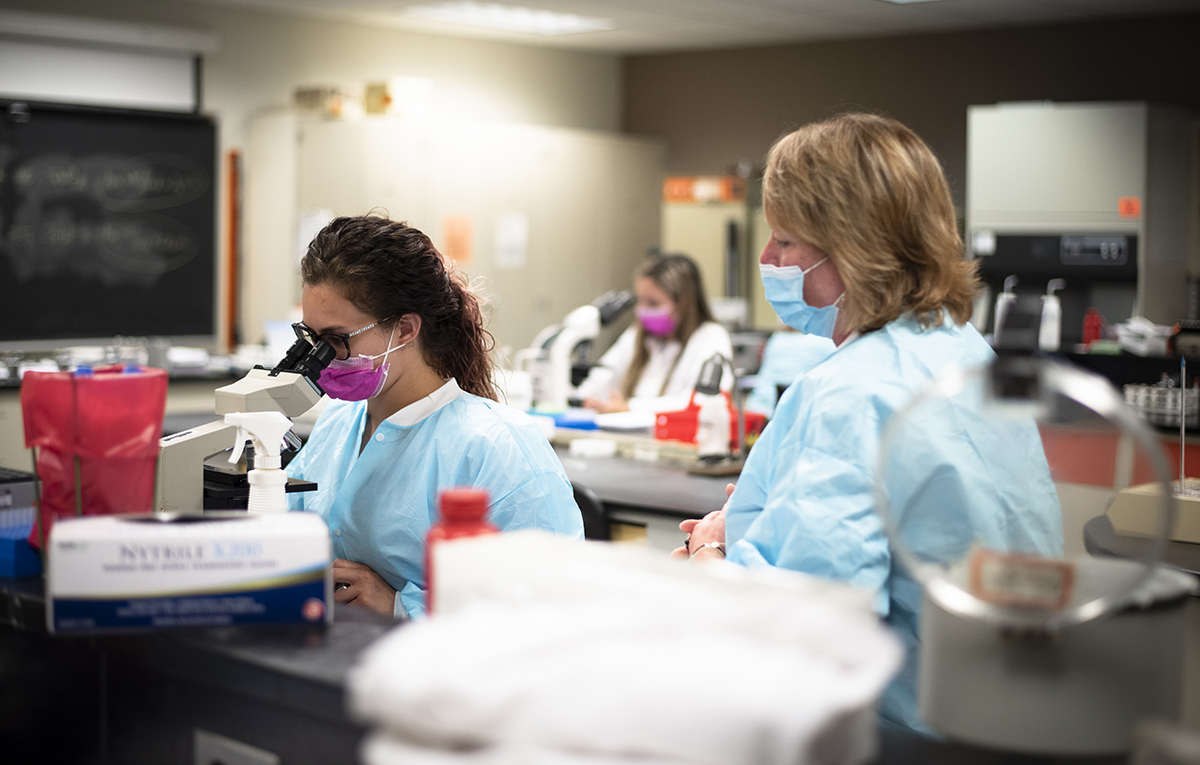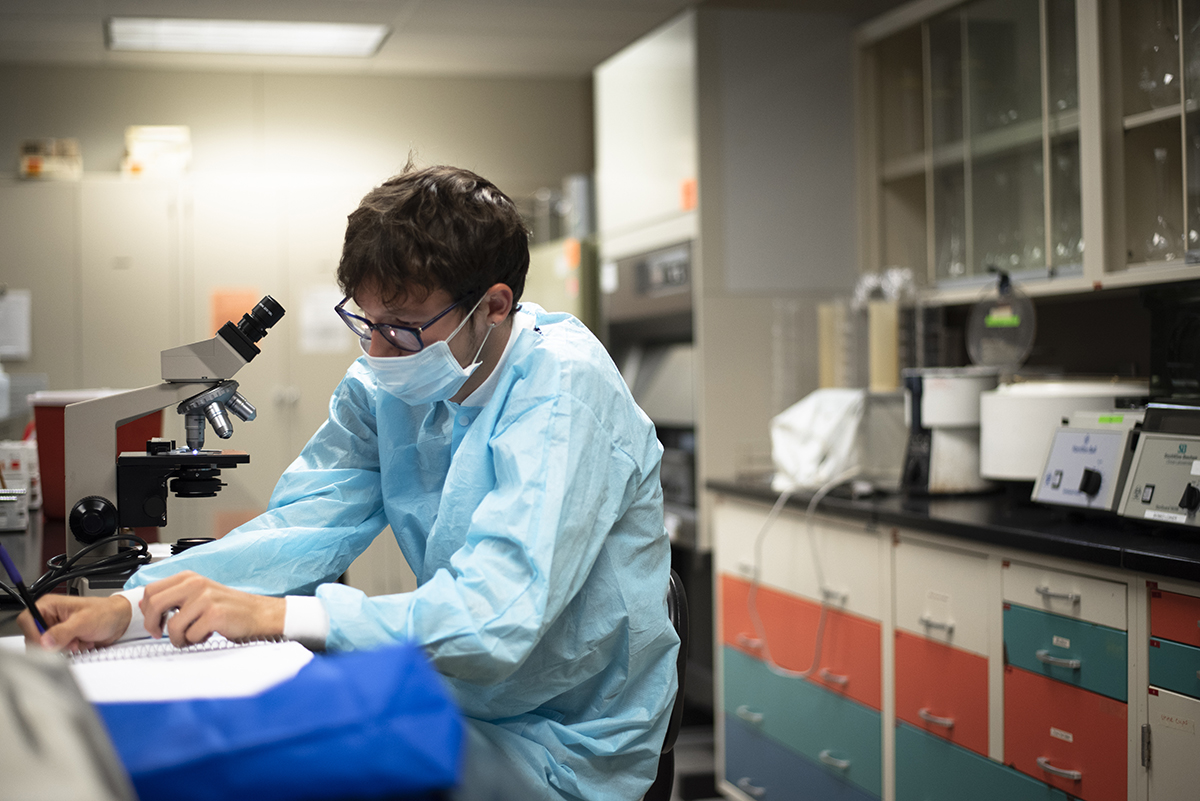August 13, 2020

Shawnee State University’s Medical Laboratory Technology program is helping place graduates in southern Ohio’s regional medical facilities with laboratory testing under great pressure from COVID-19.
“Medical laboratory technicians are in a hidden profession that saves lives,” Program Director Jean McGlone explained. “The pandemic has shed some light on this, but it’s still largely misunderstood.”
Medical laboratory technicians (MLTs) work “behind the scenes” testing and analyzing samples to determine critical information about patients’ conditions. For anyone who enjoys science and could be passionate about medicine but not necessarily hands-on patient care, the field is an excellent choice.
Shawnee’s program awards students an associate degree in two years, or five semesters, with the final semester a clinical field experience in one of more than half a dozen regional medical facilities who partner with SSU.
The program reports 100 percent placement among graduates seeking employment.
“Not only are MLTs in need now, but there will be a tremendous need in the very near future,” McGlone said. “Nearly all of our area’s facilities are expecting to lose up to a third of their staff to retirement in the next handful of years.”
Assistant Professor Andrea Zaph said the pandemic has put additional pressure on medical laboratories, with shortages of some testing materials.
“We have affiliation agreements with facilities not only here in Portsmouth but Hillsboro, Chillicothe, Gallipolis, Ashland, Kentucky and Huntington, West Virginia,” Zaph said. “In their last semester in the program students are placed in these facilities, working side by side with professionals in their clinical practice to gain even more insightful experience right now.”

Daisy Grooms was working through her clinicals in spring semester at Southern Ohio Medical Center in Portsmouth when COVID-19 struck. Student workers were sent home as part of lockdown, but when the lockdown was over, Daisy found herself able to successfully apply for an MLT position. She starts her new career this month.
“I’m super-excited to be working at SOMC, because last summer I was a patient there and the care and service was fantastic,” Grooms said. “That has also been the case in the lab, where there are many professionals with 30 or more years of experience. They are very willing to share their knowledge and what they’ve learned in those years of practice.”
Grooms pointed out that both McGlone and Zaph worked for years in the MLT field before becoming teachers. “Their prior field experience has helped a lot in the program. It’s a tough program and students have to make some sacrifices, but it’s very much worth the effort.”
Aaron Parker, who graduated from the program in June, has been hired at King’s Daughters Medical Center in Ashland, KY.
“I have found this to be an incredibly rewarding experience,” Parker said. “We’re getting medical providers the information they require to meet patient care needs. That is definitely important, especially now.”
The Wheelersburg resident already had a bachelor of science in biology, but decided to go through SSU’s MLT program anyway. “I wanted a degree that had really good job prospects upon graduation and the MLT is one of the best.”
Parker said the SSU program’s instructors are excellent because of their years of prior field experience. He noted that the clinical field semester can be an open door to start a career. “Students should choose their clinical site based on where they want to work, because that semester is really like an extended job interview.”
For more information on SSU’s MLT program, contact Program Director Jean McGlone at jmcglone@shawnee.edu or visit the MLT program page.
